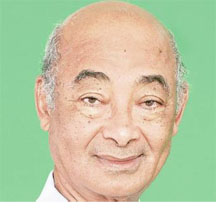By Rudi V. Webster
In 2011 I wrote: “After an impressive run as world champions, the Australian cricket team recently went into a state of decline. But, unlike the West Indies they have already recognized and accepted that decline and are looking for solutions. They are beginning to ask the right questions, are making some difficult and unpopular decisions, are relisting their first important priorities, and are starting to put different personnel, structures, systems and resources in place to arrest that decline and start a second growth curve. Sooner rather than later, they will have a rebirth and climb back to the top tier of the Test and One-Day rankings. Psychological rebirth like human birth can be traumatic and painful but in the end it is worth the pain and anxiety.”

In 2013 after losing the Ashes series to England, Australia made an amazing turnaround by whitewashing England 5-0 down under, and by winning the Test series against South Africa, the world’s number one Test team, in 2014 by two games to one.
In August 2011, the Argus Report on the state of Australian cricket and the way forward was released. A few years earlier a similar report on West Indies cricket, the Patterson Report, was submitted to the West Indies Cricket Board (WICB). Cricket Australia (CA) did not adopt all of the report’s recommendations but unlike the WICB, CA implemented the important ones, some of which are similar to the changes I highlighted above. The three national selectors, Andrew Hilditch, Greg Chappell and Jamie Fox were soon replaced and head coach Tim Nielsen did not reapply for his job. Since then, many players have left the team, including Rickey Ponting and Mike Hussey.
Mickey Arthur replaced Tim Nielsen as coach but after a poor run and bad management of the relationships with his players he too was replaced. His well-publicized spat with Mitchell Johnson, vice captain Shane Watson, James Pattison and Usman Khawaja over a homework assignment and the subsequent removal of these players from the team was probably the straw that broke the camel’s back. Ottis Gibson the West Indies head coach had similar troubles with some of the senior players in the team and it is interesting to compare how WICB and CA handled the problem. CA sacked the coach and WICB sacked the players!
Since Arthur’s departure Australia has gone from strength to strength. The new coach, Darren Lehman, has done a wonderful job with his team and has been able to get the best out of his players especially out of his new star Mitchell Johnson who has played exceptionally well in the last two Test series.
Don Argus who watched the fifth Ashes Test at the Sydney Cricket Ground said that he was not prepared to call his review a success until Australia is ranked No.1 in all three formats of the game and singled out succession planning as the “big issue” confronting the triumphant Ashes team. He cautioned the architects of the revival that they must not be fooled into thinking that the job is done.
Argus also pointed out that in his report Cricket Australia’s vision was clear and its goals were written in black and white. These included restoring Australia as the number one team in Test cricket within four years (2015), regaining the Ashes in 2013, and winning the 2015 World Cup and 2014 World Twenty20 titles. He stressed that implementation of the strategic plan was top priority.
What a pity that former prime minister of Jamaica The Most Honourable P.J Patterson cannot echo similar comments about West Indies cricket. He should not be too disappointed because he can only recommend. He cannot implement. But he can take comfort from the words of Johan Goethe the German playwright who said that people only listen to what they understand.
After the humiliating defeats of the West Indies team in India and New Zealand one expected the Board to make a few changes. But the WICB seems to be committed to preserving the status quo. The Board must be commended for its steadfastness to what it believes to be best for West Indies cricket, even though its beliefs might be the wrong ones. Our beliefs control our thinking, decisions and actions and consequently we see things not as they are but as we are. There is an old Jewish adage that says, “When you are absolutely sure that you are doing the right thing you should immediately look for a second and third alternative.” And another adage states that when you are through changing, you are through.
Let’s pray that in 2014 common sense and good fortune prevail.





